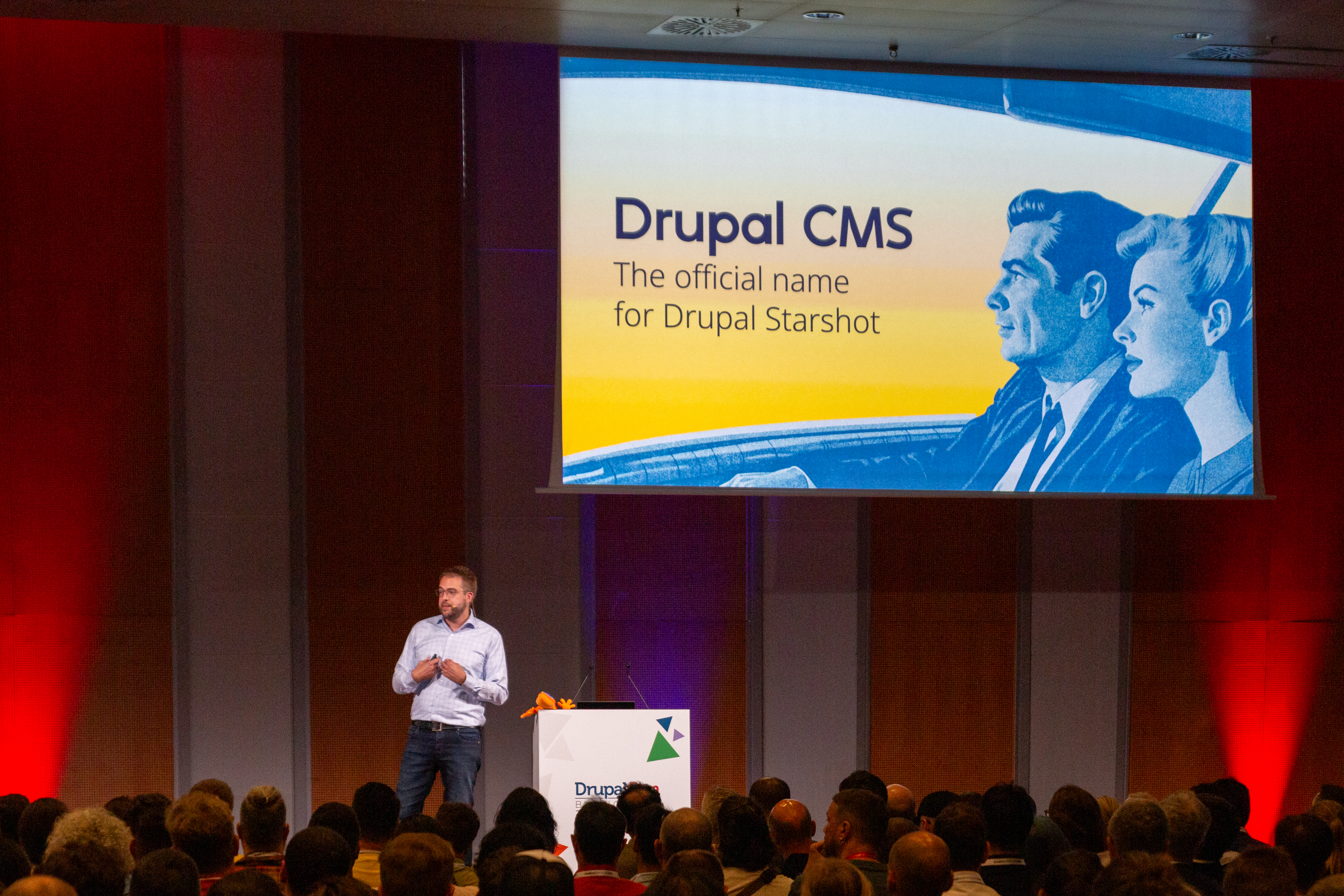Image

- 22 October, 2024
The Future of Drupal: Overcoming Challenges with Community Initiatives
Leave this field blank
Image from the DriesNote in Drupalcon Barcelona 2024 by savrtfmm51, shared under the Attribution-Sharealike license.
Drupal has always been a leader in CMS innovation, but recent years have seen its adoption slow, particularly among beginners and smaller businesses. When Drupal 8 launched, the system became more professional, focusing on advanced code practices and features. This shift, while beneficial for enterprise users, came at a cost—beginners and smaller companies found it increasingly hard to use Drupal. Tools like Wix and Squarespace became the go-to options for users who needed simpler solutions, effectively shrinking Drupal’s entry-level market.
For me, one of the key advantages of open source is the freedom it provides to adopt the latest technologies without the hefty licensing fees. This flexibility allows companies to invest in engineering and people rather than in software licensing, enabling a more balanced and sustainable business model. While proprietary systems often require constant payments for every feature, open-source tools like Drupal allow businesses to adapt, innovate, and grow without being locked into expensive vendor ecosystems.
But the growing complexity has led to two major issues: the increasing specialization of Drupal developers and the shrinking pool of junior devs. With fewer entry-level opportunities, we now face a situation where senior devs, who are expensive, handle tasks that junior devs could easily manage. Clients don’t understand why they’re paying high hourly rates for updates that don’t require advanced expertise. This disconnect has hurt Drupal’s affordability and market appeal, even at the corporate level, as competition grows and budgets tighten.
The recent tech layoffs further highlight Drupal’s vulnerability. Even once stable, Drupal now faces the same challenges as the broader tech world. But these challenges present new opportunities. Initiatives like Drupal CMS (formerly Starshot), the IXP Fellowship, and the Drupal Open Curriculum are designed to address these problems. Drupal CMS aims to simplify the platform for beginners and small businesses, without sacrificing its capabilities for advanced users. The IXP Fellowship introduces a structured path for inexperienced developers to gain real-world experience, helping to replenish the talent pool and reduce development costs through a more diverse workforce.
These initiatives, combined with automation, will help bring down the total cost of ownership for Drupal. Smaller companies and personal projects will have the tools they need to thrive, while growing businesses will continue to benefit from the power and scalability that Drupal offers. In the long run, we can create a more sustainable ecosystem where junior developers gain experience, senior developers focus on high-value tasks, and Drupal remains competitive in a fast-evolving market.
Our proposed panel for DrupalCon Atlanta may be able to dive into these issues, discussing how community-driven initiatives can shape the future of Drupal—not just from an open-source collaboration perspective, but also from a business sustainability standpoint.
A Drupal Couple
Categorized:
Add new comment
You must have JavaScript enabled to use this form.
Your name
Comment
